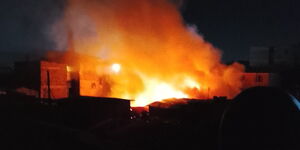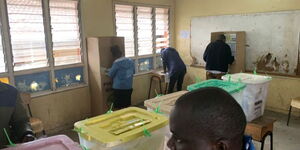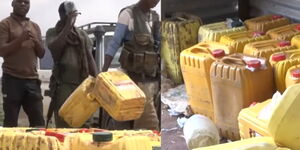The National Authority for the Campaign Against Alcohol and Drug Abuse (NACADA) has flagged Airbnbs as key facilitators of illegal drug trade and abuse in the country.
In a statement on Monday, March 10, the authority, blamed the private spaces for the rising misuse of drugs, particularly among the youth.
According to NACADA, its crackdown on illegal drugs in entertainment venues and residential areas has pushed illicit drug operators to adopt new strategies to evade detection.
“The enforcement pressure has forced individuals involved in the illegal drug trade to shift their activities to seemingly discreet locations such as Airbnbs, where they attempt to evade scrutiny,” NACADA stated.
NACADA also noted that over the past year, several reports have emerged of young people engaging in drug use within private rental spaces, some resulting in fatal overdoses.
The authority estimates that 23 per cent of young adults aged between 18 and 24 have used drugs, with private venues like Airbnbs contributing significantly to such cases.
“We are intensifying surveillance, awareness campaigns, and collaborations with the police, county governments, and the private sector to curb this emerging threat,” NACADA reiterated.
In their statement, NACADA also called for stricter monitoring and regulations of short-term rental accommodations. The authority further urged immediate action from stakeholders while warning Airbnb hosts against neglecting due diligence in screening guests.
Airbnb hosts have also been encouraged to report any suspicious activity to the relevant authorities for further action.
The authority's statement came just weeks after a report exposed a concerning trend—university lecturers were among those supplying drugs to young people.
In a recent survey conducted on a sample of 15,730 students, NACADA found that nearly half of university students use drugs, with their lecturers being among the suppliers.
The report also highlighted canteens, bars, and premises near universities, which account for 59.3 per cent of drug access points for young people.
Even more concerning, one in every two university students in Kenya has used drugs or substances of abuse at some point in their lives.












